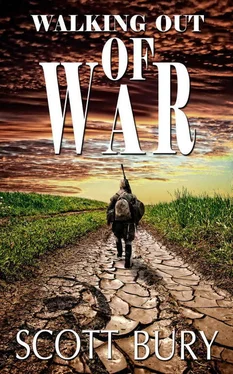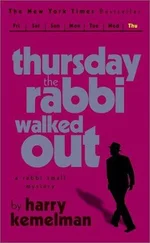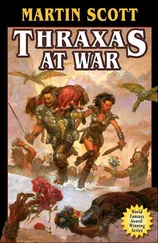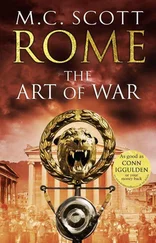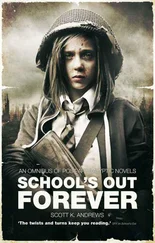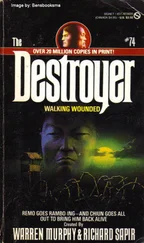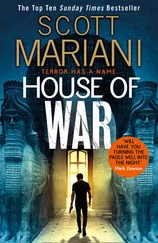Maurice pulled his cuff over his hand and slid the pan off the stove onto a table, letting go before it could hurt him. Basil propped the door open and then pushed the windows wider, and the smoke gradually cleared. “What kind of idiot leaves a frypan on a hot stove to burn?” he wondered.
“I can’t understand why there’s no one in an army kitchen,” said Maurice. The frypan was not the only thing that was hot. Pots bubbled furiously on all three stoves. The bottom of the frypan was black, and dark chunks smouldered. “I think they were frying sliced potatoes.”
He ladled the hash browns that were not too burned into a metal bowl, then threw the burnt pieces out the door. Immediately, dogs appeared and gobbled them down, panting out the heat from the burned tubers.
Beside the stove was a big bowl of raw potato chunks and another tub of fat. Basil gobbled down two pieces of potato, but Maurice pushed him away before he could take more. Maurice spooned a generous helping of fat into the frypan, set it back on the stove and when the lard had melted, dumped in a helping of potatoes. He was stirring the hash browns and humming when a soldier in a green undershirt, long white apron and white hat came in. “Who the hell are you two?” He did not look more than 18 years old.
Maurice turned around slowly and smiled a little. “Don’t you know never to leave a fry pan unwatched?” he asked in his best English. Then he returned his attention to the pan.
“I—I just stepped outside for a minute…” the soldier babbled. “What do you know about a mess kitchen?”
“I know how to cook.”
The soldier hesitated, then nodded. “Okay, then. You keep at them hash browns. And you,” he pointed at Basil, “can peel more ‘taters.” He gave them each a long apron and a hair net. “Standing orders. If you work in a kitchen, you gotta keep your hair outta the food.”
Basil just looked at the young soldier. “I don’t think he speaks English,” Maurice said. He translated. Basil nodded, picked up a knife and went to work on a huge pile of potatoes.
Basil was tall with long, thin legs, arms and fingers. Younger than Jaroslav, he might have been handsome, but now his black hair was thin and limp and dirty. Crescents as dark as bruises hung under his eyes and a scar stood out angry and red across his neck. Maurice wondered how he had escaped a hanging. But in the kitchen, his long fingers moved quickly, efficiently stripping the peel off a potato and moving to the next one.
Maurice was finishing the third batch of hash browns and the GI cook was stirring a soup pot when into the kitchen came the lieutenant that had told Maurice he could not stay. “What’s going on here, sergeant? Why are these two civilians in the kitchen?”
The sergeant stood tall and saluted. “I saw ’em hangin’ around the back door, lookin’ hungry,” he said smoothly. “I figgered it’d be better to put ‘em to work than lettin’ ’em steal food. ‘Sides, we’re s’posed to give work to the dee-pees when we can, ain’t we? En I’m short-handed since Willy got hurt.”
The lieutenant looked confused, then exasperated. Finally, he shook his head. “Fine. Keep an eye on them, get some use out of them, and after cleanup, I want to see all three of you in my office.”
The GI cook saluted again. When the kitchen door closed behind the lieutenant, the cook thumbed his nose. “War’s over,” he said to Maurice. “I don’t see why we gotta still follow all these goddamn army procedures. I’m Leo. Corporal Zyskowski. What’s your name, mac?”
“No, not ‘Mac.’ Maurice. And this is Basil. Or you can call him ‘William.’”
“No, we already got a Willy. Dumb son-of-a-bitch burned his hand and now he can’t work in a kitchen. Prob’ly did it on purpose. So you,” he pointed a chin at Basil, “Will just be plain ‘Basil.’”
The three men bustled around the kitchen, with Maurice and Basil helping wherever Corporal Zyskowski directed them. When the GIs filed into the mess, Maurice and Basil ladled mashed potatoes onto plates. None of the men even noticed the newcomers.
After cleanup, Maurice, Basil and Leo went to a house near the camp. It was a handsome home that had once belonged to a wealthy German, with a neat front porch and nearly clean windows. Every line of the building was perfectly straight, and any dirt or scuff marks on the floors and walls was new, the fault of careless American soldiers.
The lieutenant was sitting in the parlour, on a formal and very German-looking chair. Sitting at a table on a wooden chair was another corporal, in full uniform. He looked even younger than Leo. He held a pencil in one hand and a ledger was spread on the table in front of him.
Leo saluted, and Maurice thought it was a little too stiff and formal, bordering on ironic. “Corporal Zyskowski reporting as ordered, Lieutenant Gardner.” The other corporal scribbled on the ledger and Lieutenant Gardner returned Corporal Zyskowski’s salute without rising. “So, who are these two?”
“This is Maurice, and this is Basil, sir,” Zyskowski answered.
“Do they have last names?”
“Bury,” Maurice volunteered. “I am Maurice Bury.”
“Yes, I remember you. I told you you’re not eligible to stay here. What about the other one?”
“He’s Tkacz. He doesn’t speak English,” said Maurice.
“Catch?” asked the corporal at the table.
“Tkacz,” Maurice repeated.
“T-cats?” said the corporal.
“T-K-A-C-Z.”
“‘Zed’? What’s a ‘zed’?”
“‘Zee,’” Maurice answered.
“They’re both real good workers and know their way around a kitchen, Lieutenant,” Leo said, still standing at attention.
Lieutenant Gardner looked at the two men, lips pursed. Finally, he nodded. “Very well, Corporal,” he turned to his secretary. “Give them both D.P. cards and record them as being on K.P. duty. We’ll pay them out of the U.N. funds.”
Pay us? Maurice thought. He began to breathe a little faster.
The corporal at the table shuffled some papers, asked Maurice for the spelling of Basil’s name again. He scribbled with his pen and handed each of them a small piece of white cardboard.
Maurice translated for Basil: “Allied Expeditionary Force, D.P. Index Card,” he read. “‘D.P. for ‘displaced person.’ That, across the card, says ‘Not a pass.’ That means you cannot use it to go out of the camp. It has your name here, in Western script. There was also a serial number on the front, beside big, bold letters “GB.”
He turned the card over and translated the back for Basil. “‘Keep this card at all times to assist your safe return home. The Registration Number and your name identify you and your Registration Record.’”
“I already have one of these.”
“Keep both. You never know when you’ll need an extra one.”
“You need to sign them,” said the corporal. He held out a fountain pen.
Basil took it first and signed his name in Cyrillic script on the front.
Maurice looked at his: the corporal had spelled his name BURE MORITZ.
I guess that’s what I sound like to American ears. He took the fountain pen, and only when he finished signing the card did he realize he had also signed using Cyrillic script.
The lieutenant dismissed them and they went back to the camp in the late-setting June sun. “Don’t worry, Morrie,” Leo said when Maurice showed him his D.P. card. “The army spelled my name wrong, too. To them, I’m ‘Lytkowski.’ But I still get paid.”
Maurice’s life took on a new pattern then. He stayed in the U.S. Army-issued tent with the Tkaczes at night, and rose with the early June sunrise to go to the kitchen for what the Americans called “K.P.”—kitchen duty. He and Basil peeled potatoes and fried them, chopped vegetables, stirred pots, brought in pails of water, swept and scrubbed and fetched things for Corporal Leo Zyskowski or Lytkowski. They ate after serving the meals to the soldiers and officers, and in the evening, Basil brought some of the leftovers to the other members of his family. “Don’t worry about it,” Zyskowski said. “The army throws all that out, anyway.”
Читать дальше
